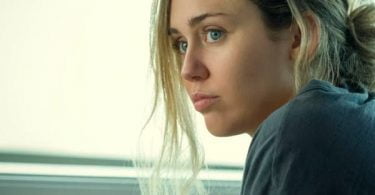It’s Christmas, or at least, we’ve all been treated early. Orange is the New Black (OITNB) is streaming live on Netflix as I type. We’re all up to different points; I think it’s safe to say there are no two people watching from the same point.
Binge-watching TV shows is something some might feel is time-consuming or ridiculous, but the fact is you hardly feel time pass, especially with this show in particular. Each episode sucks you in; at times you wish they were released weekly so you could take in all the information, all the laughs and sadness and maybe watch it once or twice more before the next episode comes along.
This isn’t the case – we fall into the trap of clicking the next episode as a flash of orange that takes command at the end of each episode. You don’t have time to watch the end credits; really, you don’t even have time to watch the opening titles either.
Starting in a good place
Series 4 opens in a good place: right where we left off. Some shows benefit from a gap in time for various reasons, but in this instance, we benefit from overseeing the consequences of the prisoners escaping to the lake. The fourth season finale sets about a much darker tone; there is a lack of freedom and a remarkable lack of space from the off-set with this season, which all congregates together for a heart-breaking ending (but more on that later…) No one is innocent anymore – it certainly feels this way the moment the women are pulled from their safe haven back into the jaws of Litchfield, where a new crowd await their arrival.
So who takes centre stage this year? Interestingly, some characters you might not have considered. Naturally, Piper and Vause – but we start to drift away from the original cast and into the realm of real race war. The newcomers are sure to stir things up, but there are elements from season three that still need to be addressed. Thankfully, Stella only receives a brief encounter. I never much cared for this character; she was too ‘textbook’ for my liking, as if everything she says should be written in a prolific novel about philosophy and life.
But with faces such as Nichols and Sophia back on the scene, it gives an insight into how the others live; the others down the hill. We’ve never experienced Max before, and it’s certainly portrayed in a very different light.
I’ve always liked the fact that Piper was oblivious to the commotion and the excitement of the lake, almost as if the writers are trying to show us her lack of innocence, sweeping the empty halls with an impressed grin moulding onto her face, thinking for the first time she’s achieved some good.
Hard-faced and hell-bent on a certain level of power, Piper has Stella carted to max. Impressed by her own superiority, she sets out to ensure her fellow inmates are aware of this sudden cunning streak she possesses. Of course, this is something she later begins to regret. All her actions have consequences, but it is these consequences that begin to make her question herself. Perhaps she never changed. Having never experienced prison before, I don’t speak first hand, but I imagine you need a certain level of ‘face’ to survive the ordeal and come out half the person you were before you entered. You often hear the phrase ‘prison changes a person’; this show epitomises that belief through flashbacks and a line spoken by one of the guards: ‘you’d all rather be somewhere else.’
These women are not in prison for the social aspects, though it can be said some might be unable to function in the real world (Taystee from Season One is a fine example of this) – becoming dependent on the safety of four walls seems much less daunting than facing an open reality with no insulation. And while the show is ridiculously hilarious, it’s a darkening comedy you only truly acknowledge when you realise these women are criminals and are in prison: I think perhaps, a lot of the time, they forget this themselves.
But you would. Why would you force yourself to remember? Piper proclaimed back in Season One that she would make her time in prison count, so being branded as a Nazi sympathiser (quite literally) isn’t exactly what she set out to do with her time behind bars (there aren’t actually bars, but you know what I mean).
A softer side
We start to see a softer side to her in the latter half of the season, weakened somewhat, and by no means the queen bee she hoped people would label her as. Piper is a standing example of all these women: trying to fit in and find their place, yet out of them all, she seems to struggle the most.
We explore the pasts of some characters we never really considered before; at least, characters that were somewhat minor beforehand. The show begins with Piper’s story, but now as we become more familiar with these women and the male guards, we become attracted to the thought of them outside of the prison walls.
Lolly’s flashbacks certainly hit home about how sensitive and well-structured this show really can be. Lolly is, without doubt, a ‘unique’ character, but she’s also hilarious, and yet when you find her funny, it doesn’t take a person too long to straighten their face in horror and realise this isn’t a joke; she’s not doing this for attention or to be noticed.
She’s doing it because it’s what she truly believes. Is that how we all deal with madness? We laugh it off until we realise what it truly is, then it haunts us. The relationship between herself and Healy is an interesting one: not specifically two loners. Once again, Healy exerts the need to have someone by his side, no matter how little they regard him as a person.
To date, there have been few to enjoy his company, and yet he takes pride in helping Lolly; he takes pride in helping her through her ailments in the way in which he couldn’t help his own mother, he seems to suffer certain degrees of mental illness herself. And yet he realises he must do the one thing he never did with his mother until she abandoned him: let her go. The best place for Lolly is Psych, but it takes a great deal of admittance from Healy to step up to the mark and deliver her.
With Lolly in mind, it’s strange to actually think of any of these women, in the present – in the now – committing a crime. They’re all inside because of their past, but it’s in very small doses that we ever see this ‘criminal’ side of the characters come out in black and white. Perhaps the genius of the writing hopes to avoid this; prison is the foundation of this story, maybe. But the fact we see two, then three, then four or more come into the fold concerning Alex’s problem from the season three finale, we see a more dangerous side to some, and a softer side to others.
Criminals are not all the same: someone who commits fraud or sells drugs cannot automatically be assumed to be a killer. And yet here we see Alex commit a crime larger than any she has ever received a sentence for. Caputo himself says, ‘women are doing things they don’t like just to keep their head above the water’. And it’s never been truer in this case. With this ominous sense of uncertainty throughout the season, alliances are formed.
Newcomers are sometimes difficult to come to terms with, especially when a stellar cast already exists. But naturally, the writers of this drama make them fit in immediately and use the overpopulation of the prison to their advantage. The problem is not overcrowding, nor the lack of toilets, but the danger that comes with masses of criminals. They spend much of their time in emotional entanglements with one another, or attempting to simply survive in a place like this, so much so we almost forget where they are. And we forget how they snap and how easy it is to cause a revolution.
An unexpected ending
OITNB has always had an interesting concept of what it means to be family. The main concept being people drift to those who look like them; the colour of their skin, as opposed to their morals or values. Why is this? Is it nature’s way of showing how these women need to protect themselves? Can a white woman know the struggles of a black woman? Can a Dominican really separate themselves from the rest of the inmates in such a fashion?
But this series it isn’t just Black Cindy who wants to start a race war; it’s the white people, too. Agendas are set from the off, and of course, as we’re constantly told by these women and the guards, you have to do what you can to survive prison. But as Piper so strongly words it, what about when you get out? Who are you then but a racist intent on division of ethnicity? Prison is a whole other world, that much we can gather – but are these women scared of realising who they truly are? Maybe the way we see the likes of Maria as her true self, hell bent on revenge. Piper takes things to the extreme, as does she. But ask yourself: would such a thing happen on the outside?
After all, the consequence was ‘more time’, so in truth, on the outside, things would have been much different. But would their reactions be too? Maria is a secondary antagonist for sure; she begins to possess extreme traits and her controlling nature is one she has either suddenly discovered in the wake of the prison overpopulation or something she has buried deep, only to allow it to resurface now to take on Piper and those who stand in her way. Of course, she is reluctant to follow Blanca in the early episodes of the fourth seasons, so her intentions are surely something that will continue in season five.
Protest is something embraced by few in the show: Soso and Sister Ingalls seem to be the only two to relish in its true effectiveness. And when the guards use protest to their advantage with Blanca’s story, its true power becomes something the inmates soon plan to take advantage of.
Brace yourselves for the ending. An ending I wasn’t expecting at all. From something so peaceful to something so devastating, only the cast could pull off such a heart-wrenching goodbye to one of the most revered and interesting characters in the show. We’ve seen her go through her ups and downs; alcoholism and Norma’s religion helped her through her season three woes, and to be the only person to stand up against the villainous Vee in season two didn’t end so physically triumphantly; but she stood up to her nonetheless.
Poussey Washington – ‘accent a droite, bitch’ – is dead.
Innocence has left Litchfield. Criminals, innocent? These criminals are not just criminals, they are people. And the death of a friend turns us into something much more than we can ever understand. These women rely on one another to see them through the day; they rely on friendship and family. And unfortunately, we say goodbye to Amanda and Mackenzie. We say goodbye to a developing, loving relationship between two unlikely people. We say goodbye to the fundamental philosophy that women actually have ‘another little hole’ just to pee.
For one final goodbye, lets remember her at some of her best:
“Did it ever occur to you we don’t wanna get in touch with our feelings? That actually feeling our feelings might make it impossible to survive in here?”
What do you think of the show and the new series? Have your say in the comments section below.








